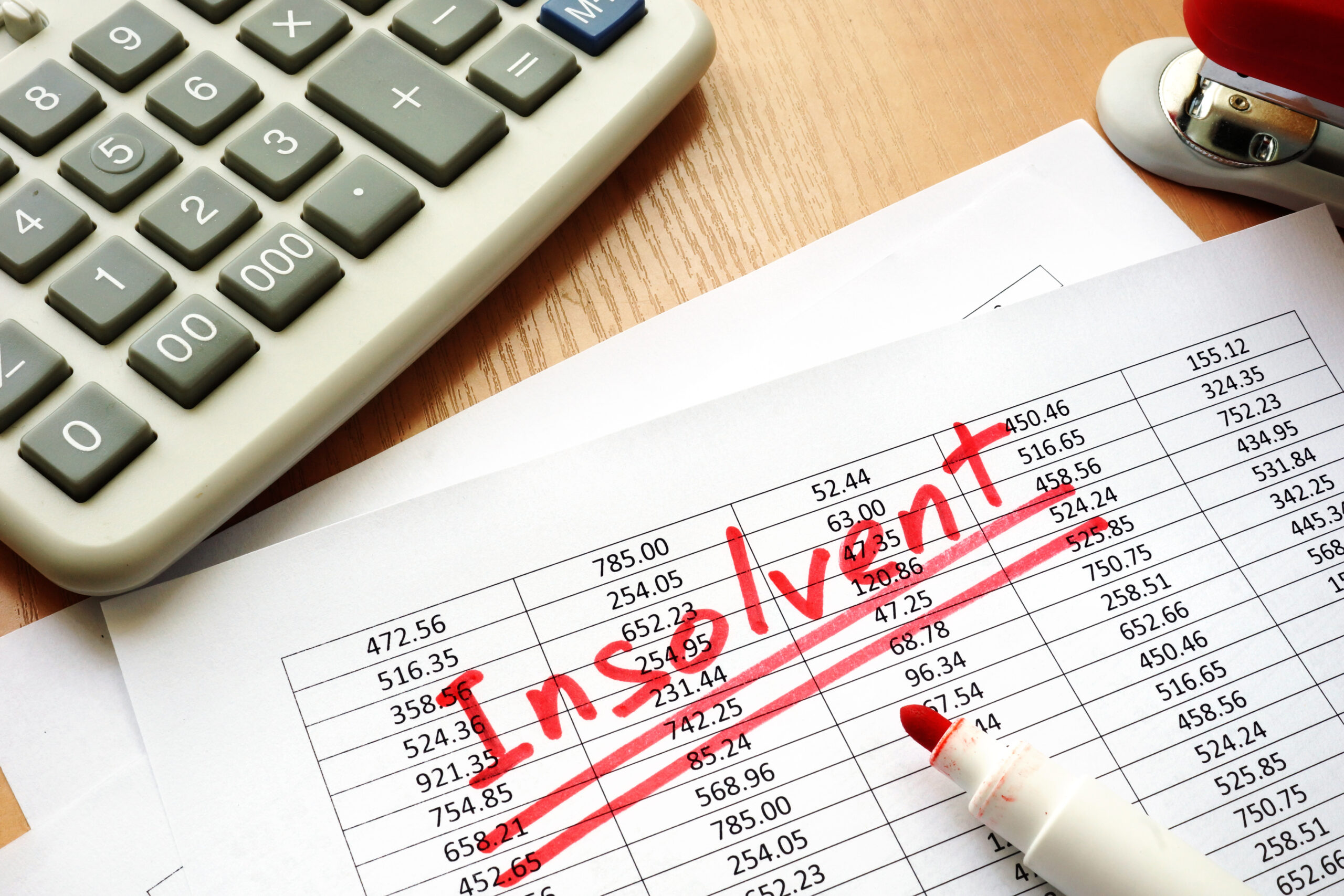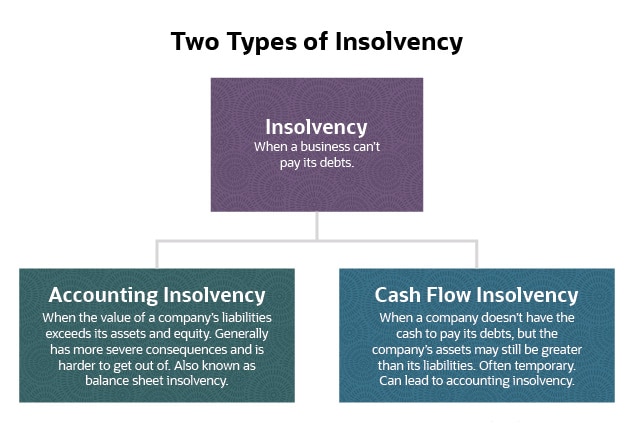Insolvency Practitioner - An Overview
Insolvency Practitioner - An Overview
Blog Article
The Best Guide To Insolvency Practitioner
Table of ContentsThe Basic Principles Of Insolvency Practitioner Not known Details About Insolvency Practitioner Insolvency Practitioner Can Be Fun For EveryoneEverything about Insolvency PractitionerThe 5-Second Trick For Insolvency PractitionerThe Definitive Guide for Insolvency PractitionerGet This Report on Insolvency Practitioner
Bankruptcy is when obligations are more than the worth of the company, or when a debtor can not pay the financial debts they owe. A company can end up being bankrupt due to a variety of situations that bring about poor cash money flow. When confronted with insolvency, a business or individual can speak to financial institutions directly and restructure financial obligations to pay them off.Service proprietors might contact creditors straight and restructure financial obligations into more manageable installations. Financial institutions are commonly responsive to this technique because they desire to be paid back and avoid losses, also if the settlement is on a delayed schedule.
What Does Insolvency Practitioner Do?
The proprietor produces a proposal outlining exactly how the financial obligation might be restructured utilizing expense decreases or other strategies for assistance. The proposition shows financial institutions just how the service may create adequate money circulation for lucrative procedures while paying its financial obligations. Usually, a forgiven financial debt may be taken into consideration income by the Internal Profits Service (IRS).

How Insolvency Practitioner can Save You Time, Stress, and Money.
When procedures discontinue, so does the company's revenue (Insolvency Practitioner). Some business become financially troubled due to the fact that their items or solutions don't evolve to fit customers' transforming needs.
Costs exceed profits and bills continue to be overdue. Sorts of bankruptcy include cash-flow bankruptcy and balance-sheet insolvency. Cash-flow bankruptcy occurs when a firm has the assets to cover their debts yet they remain in the wrong form, such as property rather of liquid funds. Balance-sheet bankruptcy, on the other hand, shows a lack of properties in any type of form to cover financial obligations.
The internal revenue service states that a person is insolvent when the total liabilities exceed total properties. A personal bankruptcy, on the various other hand, is a real court order that illustrates exactly how a bankrupt person or service will certainly settle their creditors, or how they will certainly market their possessions in order to make the repayments.
Some Ideas on Insolvency Practitioner You Should Know

Understanding the variables that can cause insolvency, such as overspending, can assist you prevent insolvency and its repercussions.
The Only Guide to Insolvency Practitioner
It is popular that supervisors and police officers of firms (and supervisors of restricted obligation business) owe fiduciary obligations to their organizations and their investors (or members). These fiduciary responsibilities are specified by state laws and, though there are variations from one state to another, they commonly include a duty of loyalty and a task of care.
The task of treatment calls for directors and policemans Read Full Report to exercise diligence, to make enlightened decisions, and to act in good confidence so that their actions are in the ideal interest of the company. Beyond the scope of this discussion, some states enable these tasks to be restricted either by so keeping in mind in the business records or abiding with various other needs.
The Insolvency Practitioner PDFs
Most states define bankruptcy in 2 ways( 1) when a company's liabilities become higher than the sum of its assets or (2) when the firm comes to be incapable to pay its financial obligations as they become dueand welcome both meanings (Insolvency Practitioner). The shift in obligations takes place due to the fact that when a firm is financially troubled, there is no value in the firm beyond that owed to the firm's lenders so that the equity owners no longer have my response a financial stake in the company
Be mindful concerning providing shareholders advantageous therapy at the cost of lenders (e.g., licensing and funding a dividend or a supply redemption). Be mindful concerning favoritism between classes of shareholders. Clear up efforts to discover all the truths before taking a certain strategy; supervisors need to truly think that any kind of decisions made are in the most effective rate of interests of the firm in its whole (i.e., decisions will certainly be assessed in hindsight in light of the impact of such actions on the company).
In any type of insolvency or insolvency case, payments made to particular financial institutions at the expenditure of other lenders can be clawed back, specifically if there is some connection between the business and the financial institution. Take into consideration recommending at a yearly investor conference (or any type of various other meeting of shareholders) a resolution attesting that all previous service decisions and activities taken by the directors and officers of the firm were absorbed excellent belief after an exercise of affordable care.
The 10-Minute Rule for Insolvency Practitioner
Completely divulge any type of personal or organization partnerships with celebrations beyond of purchases involving the firm to prevent the appearance of a conflict of passion. In examining potential fund elevating transactions or a sale of properties of the struggling firm, realize that these deals might be looked at later due to any kind of succeeding expansion of directors' fiduciary obligations to include lenders.
Report this page